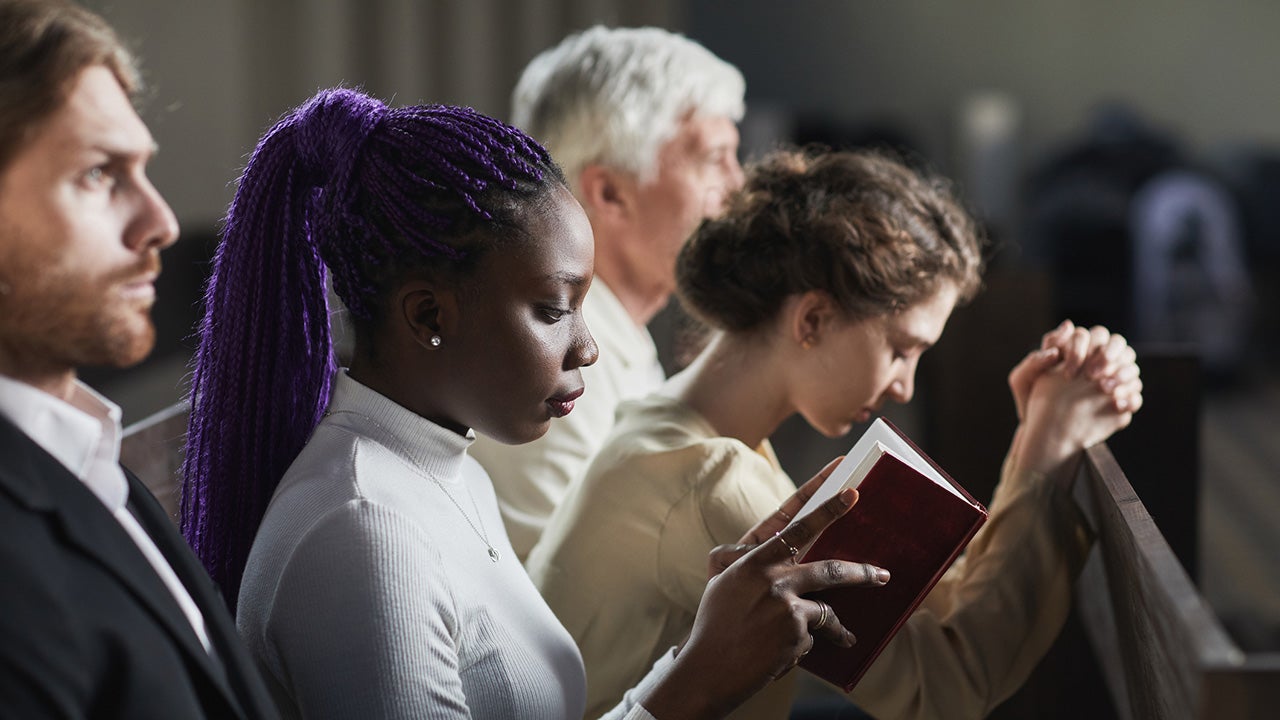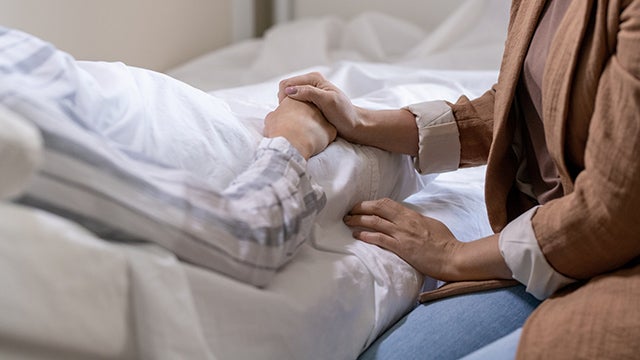As we prepare to commemorate the Religion & Society Program’s ten-year anniversary on September 22, 2022, the staff of the program gathered reflections on the importance of religious pluralism, and how it informs their work today.
“The goal of religious pluralism that Meryl Chertoff set out with, and that I have helped to push forward with Zeenat and now Simran, is not a short-term goal. We have always known this would be long-term work. So I’m most excited for the next decade of work, and the ones after that.” – Allison K. Ralph, Associate Director of Programs
“The work of the Religion & Society program is important to me because we are striving to bring society together through education to combat fear and bigotry. We promote acceptance and working together to achieve a common good.” – Brandi Marsh, Operations Coordinator
“Our ten years of religious pluralism work shows that people are curious and eager to fuel positive change rather than movements that fracture us. It’s slow progress. Religious pluralism often happens through conversation, which builds respect across differences. In this first decade, we’ve seen results and now we get to build on them. Personally, it’s important to me that I am a part of positive change in our society and that I recognize the dignity of everyone around me.” – Sheridan Ruiz, Development Associate
“Over the last decade of the Program’s work, it’s clear that the world has never needed pluralism more than in this moment. I believe in the vision of religious pluralism that we’ve put forward, where those both religious and not can thrive, respecting and engaging with each other not in spite of their beliefs, but because of them. Faith impacts so many facets of our worldviews and lives – it must be part of the conversations we have about building bridges and connecting with one another.” – Alise Murawski, Senior Communications Associate.
“We work to create a society where the good of religion is actualized and everyone has the rights, freedoms, and safety to worship, according to their conscience. I believe that one of the most important pieces of work we do to turn this vision into a reality is connecting and supporting the leaders on the ground who are already doing this work in unique and different ways. This work all points to various answers to the question of what is needed to support religion as a force of good in our society, and it’s only just beginning.” – Abbie Haug, Senior Program Associate
“Our work towards achieving religious pluralism is significant as it continues to provide opportunities for a greater exchange of ideas and worldviews across various faiths and beliefs. With every world event or newfound revelation related to faith uncovers innovative ways for people to learn who is across the aisle in that moment and allows folks the freedom to share their faith, exempt from fear and harm.” – Marklyn Louis, Senior Operations Associate
“I was born in a Lutheran medical center to two devout Hindu parents. I never thought that I would be an ordained minister of Word and Sacrament in the Evangelical Lutheran Church in America. I attribute much of my pastoral formation to my Hindu upbringing. I am excited to work with the Aspen Institute’s Religion & Society Program to ensure that people have the right to live out their lives of faith (or no faith) with complete freedom and without harm.” – Tuhina Verma Rasche, Senior Research Associate
“Over the past decade, the work of the Religion & Society Program has been instrumental in creating a truly equitable and just society in the United States. Faith and religious communities, when leveraged thoughtfully, are powering conveners and advocates for prosocial change. Particularly, these collaborations have positively influenced racial justice. We know that when we work collaboratively while honoring differences, we co-create considerable change toward a greater common good, in which all are respected and able to thrive.” – Rev. Dr. Audrey Price, Associate Director of Management and Development
“When I encountered the program’s vision of religious pluralism and saw how closely it aligned with my own vision, I felt an immediate connection. The Program is uniquely positioned to act both as a convener and a thought leader at this time, in which we desperately need more conversation about the role of religion in society and prosocial change – not less. Religion and religious identity inform how people see themselves, how people see others, and how they see the challenges humanity faces. In the next ten years, I look forward to seeing our work grow further, spark more critical conversations, and creating a deeper understanding of religion’s role in building the common good.” – Simran Jeet Singh, Executive Director


